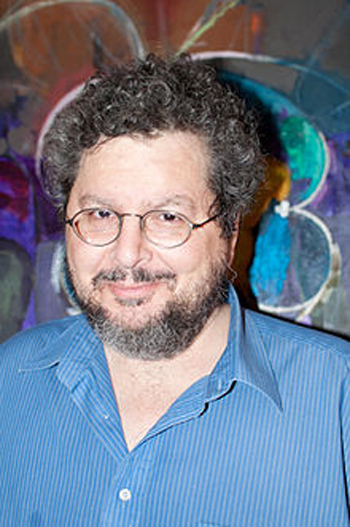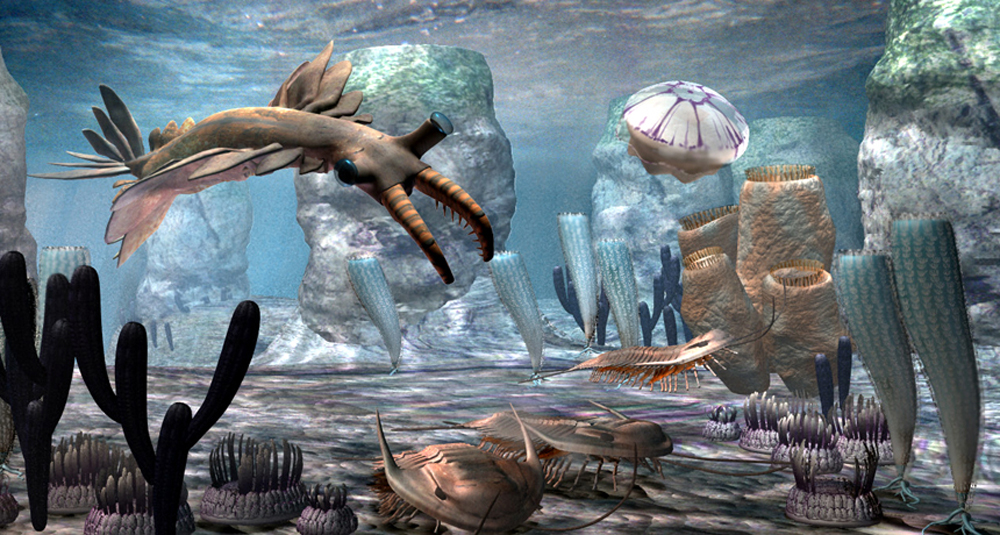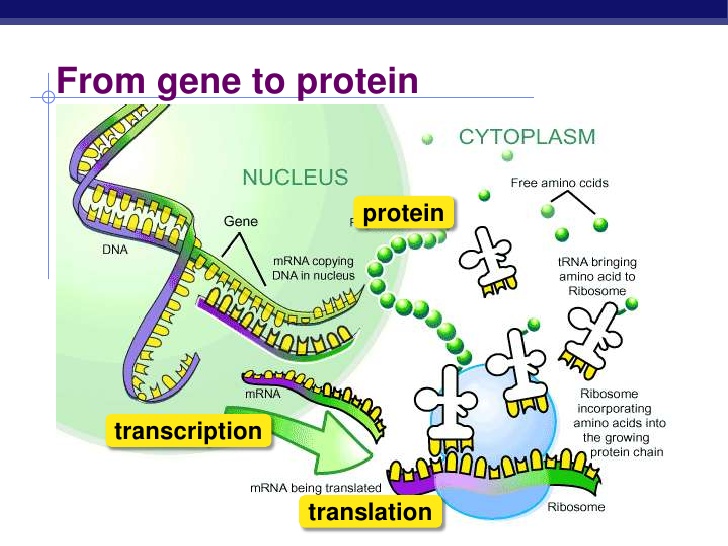By Mark Ellis –

The founder of Sun Microsystems calls David Gelernter “one of the most brilliant and visionary computer scientists of our time.” The New York Times called him a computer science “rock star”. Now the fiercely independent Yale professor known for conservative political views has shocked his contemporaries by going a step further by rejecting Darwinian evolution.
In a brilliant essay published this Spring in the Claremont Review of Books, David Gelernter demolishes the underpinnings of evolution, writing: “The origin of species is exactly what Darwin cannot explain.”
For most of his life, Gelernter considered Darwin’s theory to be brilliant and beautiful, part of the “basic credo that defines the modern worldview.” Like most in the world of academia, he always believed evolution to be true.
While he acknowledges that “Darwin successfully explained the small adjustments by which an organism adapts to local circumstances: changes to fur density or wing style or beak shape. Yet there are many reasons to doubt whether he can answer the hard questions and explain the big picture—not the fine-tuning of existing species but the emergence of new ones.”
Gelernter credits Stephen Meyer’s book Darwin’s Doubt with a change in his thinking, along with Berlinski’s The Deniable Darwin and Klinghoffer’s Debating Darwin’s Doubt.
“Meyer…disassembles the theory of evolution piece by piece. Darwin’s Doubt is one of the most important books in a generation. Few open-minded people will finish it with their faith in Darwin intact,” Gelernter notes.
While Gelernter doesn’t ascribe wholeheartedly to Intelligent Design (I.D.) as Meyer presents it, he sees it as a suitable replacement theory demonstrating “a plain case of the emperor’s new clothes.”
Some would dismiss I.D.’s link to those with a religious worldview, but Gelernter is quick to point out that, “Intelligent design as Meyer explains it never uses religious arguments, draws religious conclusions, or refers to religion in any way.”
The irony is that “the religion is all on the other side. Meyer and other proponents of I.D. are the dispassionate intellectuals making orderly scientific arguments.
“Some I.D.-haters have shown themselves willing to use any argument—fair or not, true or not, ad hominem or not—to keep this dangerous idea locked in a box forever. They remind us of the extent to which Darwinism is no longer just a scientific theory but the basis of a worldview, and an emergency replacement religion for the many troubled souls who need one.”
Gelernter observes that Darwin had reservations about his theory due to the problem of the Cambrian explosion 500 million years ago, when “a striking variety of new organisms—including the first-ever animals—pop up suddenly in the fossil record over a mere 70-odd million years.”

While Darwin assumed that subsequent discoveries in the fossil record would erase Cambrian doubts, the problems associated with it have metastasized in the intervening years.
Simply put, the predecessors of the Cambrian creatures are missing in the fossil record, despite decades of earnest investigation. “Darwin himself was disturbed by their absence from the fossil record. He believed they would turn up eventually.”
“The Cambrian explosion had been unearthed, and beneath those Cambrian creatures their Precambrian predecessors should have been waiting—and weren’t. In fact, the fossil record as a whole lacked the upward-branching structure Darwin predicted.”
As Berlinski noted, “most species enter the evolutionary order fully formed and then depart unchanged.” The gradual development of new species is largely absent.
While the Cambrian explosion produced significant doubts about evolution for Gelernter, he states that Darwin’s main problem is the development of molecular biology, a field that did not exist in Darwin’s time. “We now see from inside what he could only see from outside, as if he had developed a theory of mobile phone evolution without knowing that there were computers and software inside or what the digital revolution was all about.”
“What does generating new forms of life entail?” Gelernter asks. “Many biologists agree that generating a new shape of protein is the essence of it. Only if Neo-Darwinian evolution is creative enough to do that is it capable of creating new life-forms and pushing evolution forward…Are random mutation plus natural selection sufficient to create new protein shapes?”
In his essay, Gelernter goes into detail about how protein chains – linear sequences of atom-groups – are created and how they mutate.
“How hard is it to build a useful, well-shaped protein?” he asks. “Can you throw a bunch of amino acids together and assume that you will get something good? Or must you choose each element of the chain with painstaking care? It happens to be very hard to choose the right beads.”
The problem is that inventing a new protein means inventing a new gene by mutation that could potentially play a role in evolution…What are the odds that you will come up with a useful new protein?
Douglas Axe, a distinguished biologist at the Centre for Protein Engineering at Cambridge, did a series of experiments to estimate how many 150-long chains of polypeptides are capable of reaching the final step in the protein-creation process and holding their shapes long enough to be useful.

“He estimated that, of all 150-link amino acid sequences, 1 in 10 to the 74th power will be capable of folding into a stable protein. To say that your chances are 1 in 10 to the 74th power is no different, in practice, from saying that they are zero. It’s not surprising that your chances of hitting a stable protein that performs some useful function, and might therefore play a part in evolution, are even smaller. Axe puts them at 1 in 10 to the 77th power.”
Based on the odds, neo-Darwinian evolution is a dead loss, Gelernter reckons. “Try to mutate your way from 150 links of gibberish to a working, useful protein and you are guaranteed to fail. Try it with ten mutations, a thousand, a million—you fail. The odds bury you. It can’t be done.”
But with many organisms and the immensity of time, will the mutations win in the end?
“The odds against blind Darwinian chance having turned up even one mutation with the potential to push evolution forward are 10 to the 40th power x(1/10 to the 77th power)—10 to the 40th power tries, where your odds of success each time are 1 in 10 to the 77th power — which equals 1 in 10 to the 37th power. In practical terms, those odds are still zero. Zero odds of producing a single promising mutation in the whole history of life. Darwin loses.”
Darwin could not have foreseen the huge number of amino-acid chains relative to the number of useful proteins. “The obvious fact is that genes, in storing blueprints for the proteins that form the basis of cellular life, encode an awe-inspiring amount of information…Profound biochemical knowledge is somehow, in some sense, captured in every description of a working protein. Where on earth did it all come from?”
Can mutations drive the emergence of new organisms, as opposed to mere variations of existing forms?
The problem is that mutations that create “the big body-plan changes required by macro-evolution seem to be invariably fatal. They kill off the organism long before it can reproduce. This is common sense. Severely deformed creatures don’t ever seem fated to lead the way to glorious new forms of life. Instead, they die young.”

The German geneticists Christiane Nüsslein-Volhard and Eric Wieschaus won the Nobel Prize in 1995 for their extensive investigation of every observable or inducible mutation of Drosophila melanogaster (fruit flies).
They found the “mutations in them all killed off the fly long before it could mate. If an exhaustive search rules out every last plausible gene as a candidate for large-scale Drosophila evolution, where does that leave Darwin?
Wieschaus wrote: “What are—or what would be—the right mutations for major evolutionary change? And we don’t know the answer to that.”
The “great Darwinian paradox” is that the useless polypeptides crush the number of useful ones, according to Georgia Tech geneticist John F. McDonald. The genes that determine significant changes, at the heart of macroevolution, apparently do not vary or vary only to the detriment of the organism.
“Minor mutations are common but can’t create significant evolutionary change; major mutations are rare and fatal,” Gelernter notes.
“The exceptional intricacy of living things, and their elaborate mechanisms for fitting precisely into their natural surroundings seemed to cry out for an intelligent designer long before molecular biology and biochemistry.
“Darwin’s theory, after all, is an attempt to explain ‘design without a designer.’ An intelligent designer might seem more necessary than ever now that we understand so much cellular biology, and the impossibly long odds facing any attempt to design proteins by chance, or assemble the regulatory mechanisms that control the life cycle of a cell.”
Digital information (represented by a sequence of symbols) encoded in the DNA molecule was necessary to create the new Cambrian organisms. Cause and effect demonstrates to Meyer and Gelernter that intelligent design is the only known cause of the origin of large amounts of “functionally specified digital information.”
Where did this information come from? “I might, myself, expect to find the answer in a phenomenon that acts as if it were a new and (thus far) unknown force or field associated with consciousness,” Gelernter ventures.
Despite the rising level of criticism, Gelernter expects Darwin’s theory to be with us for a long time, exerting huge cultural influence. “Darwin’s intellectual daring will always be inspiring. The man will always be admired,” even if his theory “does not explain cases of real significance.”
Gelernter wonders how quickly scientists will get over Darwin and move on, stating this is one of most important questions facing the 21st century.
The eminent computer scientist has Jewish roots and is a senior fellow in Jewish thought at the Shalem Center (now Shalem College).
He admits the Biblical religion forces its way into the discussion of origins – even if uninvited. “Some have always been bothered by the harm Darwin is said to have done religion. His theory has been thought by some naïfs (fundamentalists as well as intellectuals) to have shown or alleged that the Bible is wrong, and Judeo-Christian religion bunk.
“But this view assumes a childishly primitive reading of Scripture. Anyone can see that there are two different creation stories in Genesis, one based on seven days, the other on the Garden of Eden. When the Bible gives us two different versions of one story, it stands to reason that the facts on which they disagree are without basic religious significance.
“The facts on which they agree are the ones that matter: God created the universe, and put man there for a reason. Darwin has nothing to say on these or any other key religious issues.”



